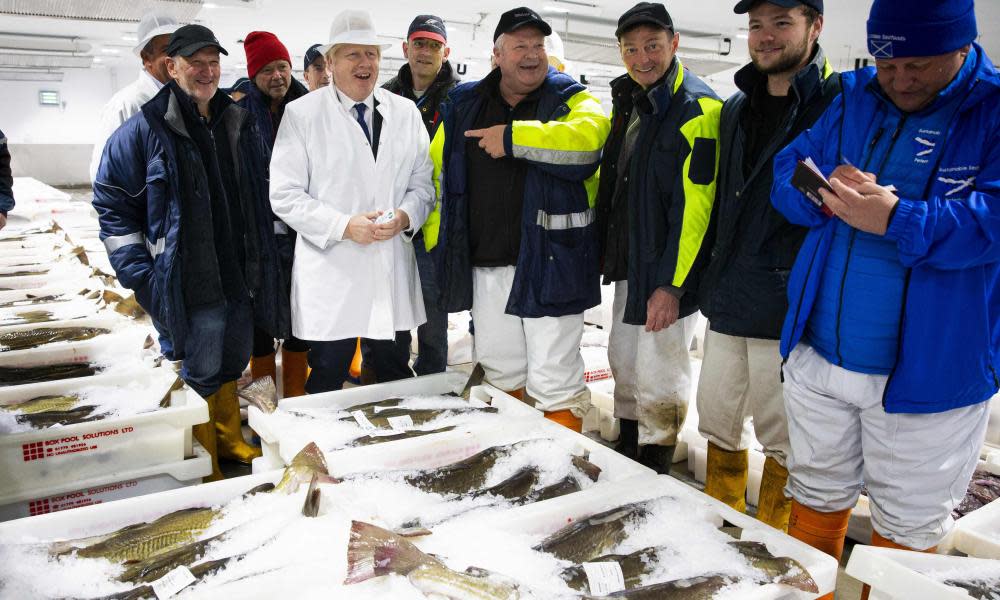The European Union and protecting workers’ rights

While Larry Elliott runs an interesting rule over the vexed question of workplace rights (The EU is no defender of workers’ rights, 25 October), he makes no attempt to trace the broader picture, which is odd for someone who, in company with Dan Atkinson, made such a damning indictment of British short-termism in their book Going South.
Workers’ rights will be a sideshow issue if we jump off the cliff with no deal (or this latest Boris deal) at the end of 2020. While I’m sentimentally attracted to this country running more of its own show, research by bodies like the Organisation for Economic Co-operation and Development show we are beset by poor senior management standards and declining spending on investment and R&D.
Ever since Margaret Thatcher and Nigel Lawson decided that we should have a boot sale of our companies we have been reliant on the kindness of foreigners. And those multinationals and investors will depart these shores in droves in the face of tariffs and lorry delays. I just wish the leave brigade would show me the blueprint for how this country intends to jerk dramatically back into life to face global competition.
David Redshaw
Gravesend, Kent
• I read with some bemusement the contention by Larry Elliot that membership of the EU has done nothing for worker health and safety.
The most significant piece of health and safety legislation in the past 30 years is the Management of Health and Safety at Work Regulations 1992, emanating solely from the EU. It enshrined in statute the concept of risk assessment, a simple but spectacularly successful idea that employers should consider the hazards of their undertaking and take steps to eliminate or reduce them prior to being put on notice by an accident.
The terms of the EC directive make it plain that the motivation was to reduce the high level of workplace injury throughout Europe, at the same time as ensuring that no member country obtained an unfair economic and competitive advantage by a race to the bottom. As a result fatal injuries in the UK workplace have reduced from 425 in 1989 to an average over the last three years of 141 per annum. Non-fatal injuries have reduced by 58% since 1986. These figures are in the public domain on the Health and Safety Executive website.
In the immortal words of Bill Clinton: “It’s not opinion; it’s arithmetic, honey.”
Ronald E Conway
Solicitor advocate, Glasgow
• As a former head of a trade union international department, I can agree with much of Larry Elliott’s arguments that the EU bureaucrats did not initiate laws protecting workers’ rights, although he might have mentioned the tragedy that was John Major’s specific rejection of the Social Chapter, a position maintained through the Blair and Cameron years.
However, the issue now is that “protecting workers’ rights under Brexit” is really a code for saying that we must resist the plan of Boris Johnson and the right to turn the UK into an offshore enterprise zone with minimum workers’ rights, undercutting European workers and driving their conditions down in a race to the bottom. This is a clear and specific reason for remaining in – and reforming – the EU.
Dr John Fisher
Retired TGWU official, Eastleigh, Hampshire
• Thank goodness for Larry Elliott, who completely demolishes the idea that the EU will defend workers from the Tories. Only a strong Labour and trade union movement can do that, Brexit or remain. Reliance on the EU to defend workers has always distracted from this truism.
Ted Watson
Brighton
• Larry Elliott is right that the EU seeks to ensure a level playing field of employment conditions, which provide an equality of market competition across member countries. As he notes, that primarily helps employers rather than employees. What he doesn’t say is that the whole point of Johnson’s Brexit deal is to allow the UK to leave that level playing field and push employment conditions even more in favour of employers. But he is right to argue that the fight to stop that will take place here, not in Brussels.
Keith Flett
Tottenham, London
• Join the debate – email guardian.letters@theguardian.com
• Read more Guardian letters – click here to visit gu.com/letters
• Do you have a photo you’d like to share with Guardian readers? Click here to upload it and we’ll publish the best submissions in the letters spread of our print edition

 Yahoo News
Yahoo News 
